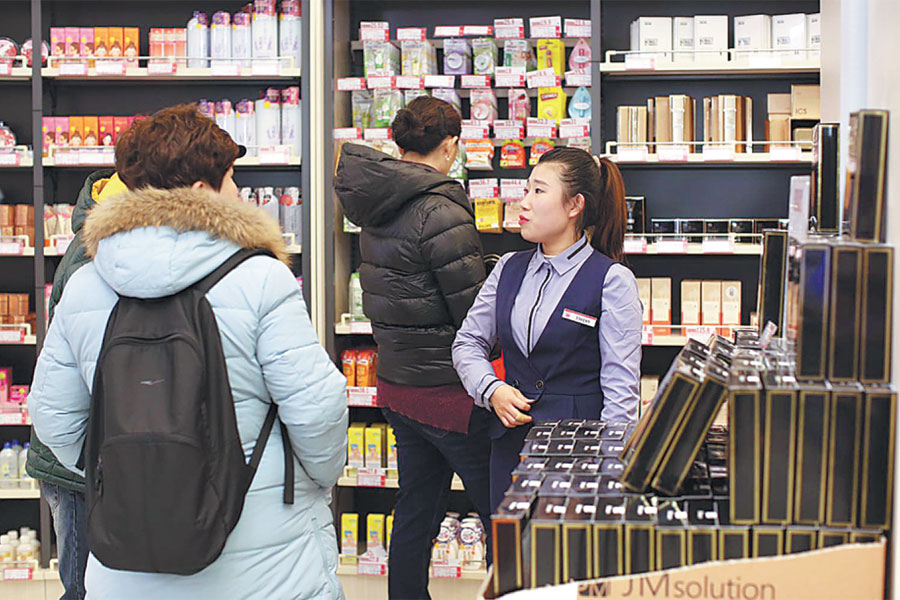Demand from young consumers fuels surge in online shopping


Ye Jing, a 26-year-old investment manager from Beijing, has been busy nianhuo shopping-purchases made specially to mark the upcoming Spring Festival.
Usually she begins her preparations weeks in advance by buying a raft of local and overseas fresh food products for the annual get-together dinner.
However, this year she chose a different approach. Thanks to the booming cross-border e-commerce services and mobile payment technologies, Ye simply logged into the cross-border e-commerce platform's mobile app and placed orders for nianhuo gifts online.
These included products like Japanese hair colorants and face masks, German hand moisturizers and foot creams, Australian goat milk soap, French hair shampoo and conditioner, male skin care gift sets from South Korea and other personal care products, all of which will be delivered to her hometown in Jingdezhen of Jiangxi province in the next few days.
"Those overseas personal care products are of good quality and not too expensive. Actually I spent only less than 500 yuan ($73) in total," Ye said. "I started to look online because I want to offer something different for my family. There were so many options with even better deals than what some regular shops offer."
Ye is just one of the growing number of younger generation who have realized the immense potential of cross-border e-commerce.
Statistics from Chinese e-commerce giant Alibaba Group Holdings Ltd show the younger generation, especially those born in the 1990s, is the driving force of cross-border e-commerce.
"The Spring Festival is always linked to a shopping spree. As the younger generation's purchasing power grows, they tend to spend more money on buying nianhuo gifts for their parents," said Shen Yuehao, general manager of The World Trade KGT International Trade Co Ltd, a Beijing-headquartered global commodities procurement platform.
KGT, which started its promotion for the nianhuo selections since December, launched two cross-border bonded imported goods shopping festival in its Beijing offline stores, offering more than 3,000 categories of products from 29 countries.
Shen said Chinese usually start shopping weeks before the Spring Festival. "The shopping during the first few weeks usually focus on buying gifts for friends and colleagues, such as wines and personal care produce. Later, it would move on to purchasing fresh food for family, including fruits and vegetables."
Between December and mid-January, the company saw a significant jump in its wine and personal care sales, and accounted for nearly 50 percent of the total volume.
"With rising income and the convenience to shop online, consumers are now paying more attention to the quality of products, making imported consumer produce one of their top priorities. The government's supportive policies will also help generate more sales in the market," Shen said.
Currently, KGT owns an e-commerce platform and several cross-border imported commodities direct-sale centers in Beijing, Tianjin, Qingdao and Zibo in Shandong province, and Shenzhen and Shantou in Guangdong province.
The younger generation are radically changing the patterns of consumption established by their predecessors. Compared to their parent generation, the post-1990s generation attaches great importance to quality of life nowadays. Data from Alibaba's dedicated cross-border e-commerce portal Tmall Global noted that personal care, digital and pet goods were top choices among imported products in 2018.
A recent report released by CBNData and other 20 plus organizations noted people born in the 1990s and 1995s surpassed those born in the 1980s to become the biggest spenders in cross-border e-commerce consumption.
On the one hand, younger consumers are willing to pay for high-end products of good quality, while on the other hand, they won't blindly chase expensive goods or big-name brands.
"Powered by the booming digital economy, we are fully embracing the upgrading consumption trend. And the rise of younger generation will bring many changes to the market," said Huang Lei, general manager of CBNData.




































